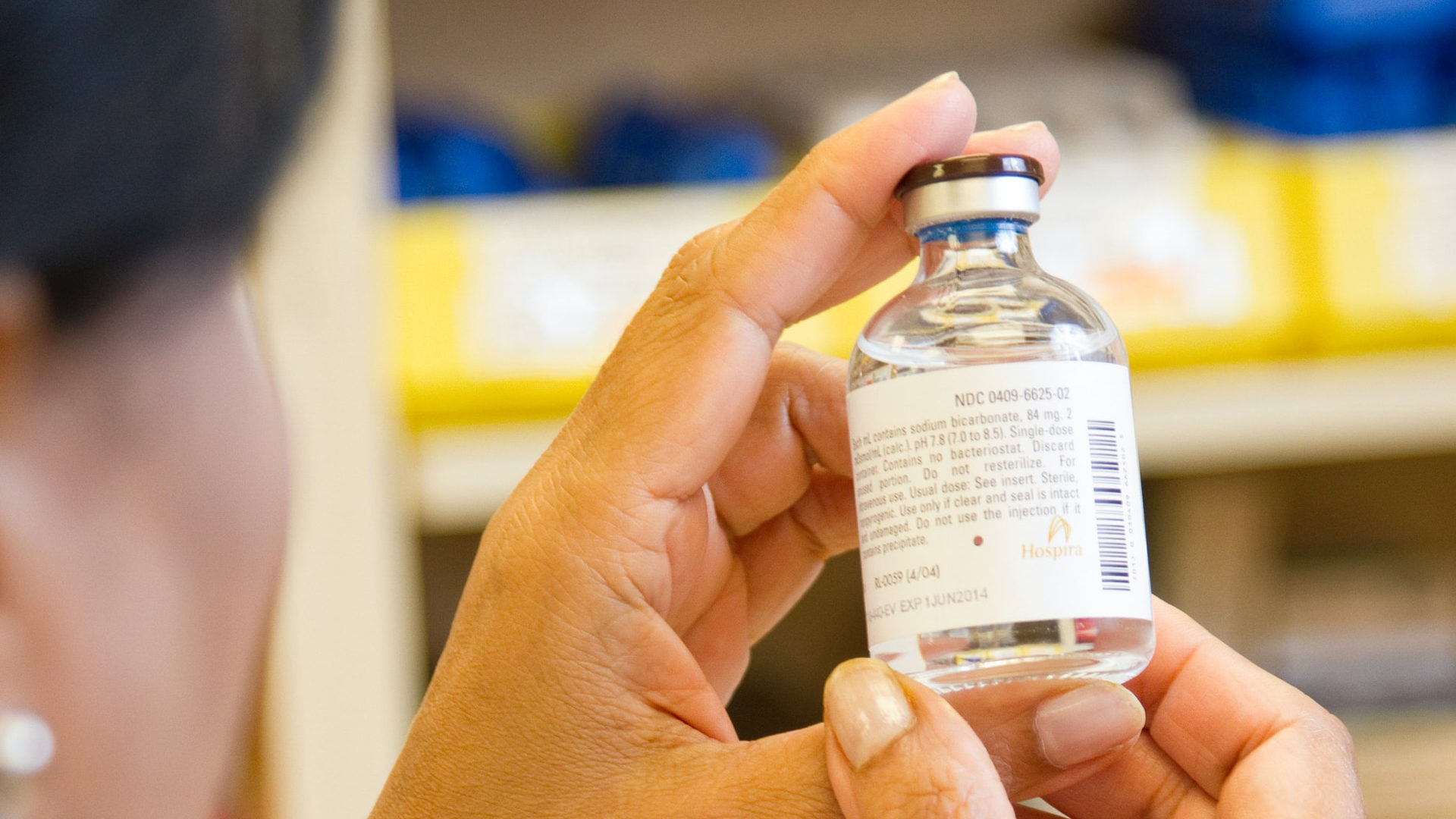Healthcare Scanner
A new dawn for SPCs
März 2021
Will UK Courts deviate from CJEU case law and support a less restrictive interpretation of the SPC Regulation?
The UK has formally exited the EU and the English Court now has the power to diverge from previously binding EU case law. Only the Supreme Court or Court of Appeal has this power and only if they consider it “right to do so”.
One area that has been the subject of repeated references to the CJEU (Court of Justice of the European Union) is the SPC Regulation and in particular the interpretation of Article 3, which sets the conditions by which SPCs are examined and granted. This has led to the current, rather restrictive interpretation of the SPC Regulation, which is one possible area where the English Court might deviate. This is particularly so as the English court has increasingly acknowledged the importance of second medical use patents as an incentive for innovation, as well as its willingness to grant preliminary injunctions against parties who have not “cleared the way”.
Obtaining an SPC
SPCs are national rights granted in accordance with EU legislation and related national legislation. Granted SPCs will continue to remain valid in the UK, and SPC applications pending at the end of the transition period will be examined and granted under the current framework. However, there are changes for SPC applications filed from 1 January 2021 onwards as discussed in detail in a recent article by HGF Partner Mike Nelson.
The UK IPO will continue to take account of the existing CJEU case law when examining SPC applications, and questions already referred to the CJEU by the English Courts before the end of the transition period will remain before the CJEU until resolved.
Although the general framework for obtaining an SPC remains the same, the question is whether the English Court will diverge from the significant and sometimes controversial body of CJEU case law relating to SPCs. Ultimately, questions of interpretation of national SPC legislation will be determined by the Supreme Court, but the Court of Appeal can decide to diverge from CJEU case law too.
Article 3
The conditions for granting an SPC are set in Article 3 of the SPC Regulation which lists four conditions that must be satisfied in order to obtain an SPC:
“A certificate shall be granted if, in the Member State in which the application referred to in Article 7 is submitted and at the date of that application:
- the product is protected by a basic patent in force;
- a valid authorisation to place the product on the market as a medicinal product has been granted in accordance with Directive 2001/83/EC or Directive 2001/82/EC, as appropriate;
- the product has not already been the subject of a certificate;
- the authorisation referred to in point (b) is the first authorisation to place the product on the market as a medicinal product.”
Article 1(b) defines the “product” of an SPC as “the active ingredient or combination of active ingredients of a medicinal product”. The term “active ingredient” is not defined by the SPC Regulation and it has been held to refer to ingredients producing a pharmacological, immunological or metabolic action of their own.
SPCs protecting early-stage innovation
Under Article 3 (above), to obtain an SPC a product must be “protected by a basic patent” that is valid in the UK when the SPC application is filed. Patent claims can be to: the product itself; a process to obtain the product; or, an application of the product such as a therapeutic use. This provision has been referred to the CJEU repeatedly. In particular, the CJEU has been asked to decide questions around products that have not been disclosed individually, or that fall within a functional definition or Markush formula, or in relation to combination products where only one of the active ingredients is identified in the patent. Many of the CJEU’s decisions, however, raise more questions than they answer.
For example, in Royalty Pharma the CJEU held that where a product was neither explicitly recited in the claims nor explicitly disclosed as an individual embodiment in the patent, it could still be considered to be “protected by a basic patent”. This would be the case, provided that it fell within the invention covered by the basic patent and the skilled person was able to identify the product “directly and unambiguously” from the specification of the patent as filed. The CJEU also indicated that an SPC would not be granted in circumstances where the product was developed after the filing date of the patent as a result of an “independent inventive step”. Questions about the meaning of the term “directly and unambiguously”, the way “independent inventive step” will be assessed, and the exact time when a product is considered as “developed” remain open.
Therefore, the English Court have an opportunity to bring some clarity to the interpretation of Article 3. It could also take a less restrictive approach than the CJEU, allowing more flexibility to obtain SPC protection based on early-stage inventions.
Article 3(b) – Which market authorisation (MA)?
For SPC applications made from 1 January 2021, the relevant MAs under Article 3(b) will be those approved by the MHRA (in Great Britain) or those valid in Northern Ireland (granted by the EMA).
For the foreseeable future, therefore, the relevant MA may cover the UK (“UK MA”), Great Britain only (“GB MA”), or Northern Ireland only (“NI MA”) but it must be the first authorisation for the product in its specific territory. If more than one MA was granted covering different parts of the UK then the application must be filed within six months of the earliest of those authorisations being granted.
SPCs for second medical use
The application of Articles 3(c) and 3(d) has been repeatedly examined in relation to new therapeutic applications of known active ingredients (second medical uses). Patentees invest in significant research and development of known substances for new therapeutic applications. As the SPC Regulation was aimed at rewarding and incentivising research in medicinal products, questions have been referred as to whether the Regulation could be interpreted as permitting SPCs for second medical uses where an earlier SPC had been granted for the original therapeutic application.
Initially, the CJEU took a restrictive approach to SPCs for second medical uses, however in 2012, following a referral from the English court, the CJEU held that the grant of an SPC was not precluded by the existence of an earlier marketing authorization (albeit for a veterinary product) for the same active ingredient (Neurim). In referring the case, Lord Justice Jacob observed that “if Neurim are wrong, then the Regulation will not have achieved its key objects for large areas of pharmaceutical research: it will not be fit for purpose.” The precise conditions and the scope of applicability of the Neurim case, particularly against the backdrop of the earlier case law, gave rise to considerable controversy and divergent approaches in different EU member states.
In the Santen judgment in 2020, the CJEU held the wording of the SPC Regulation precluded the grant of an SPCs for a new medical use of an existing product. The CJEU stated that the concept of the “product” as set out in Article 1(b) meant that Article 3(d) must be understood as relating to the first marketing authorization for any medicinal product incorporating the active ingredient under consideration, regardless of the therapeutic application for which it was approved. The Santen judgment added to the CJEU’s recent decisions in Abraxis Bioscience and Boston Scientific.
Conclusion
Many CJEU Judgments on the interpretation of the SPC Regulation have created legal controversy and the case law trajectory has taken a literal, more restrictive interpretation of Article 3, precluding the grant of an SPC for innovative medicinal products. The UK government has made it clear that it desires to continue to incentivise innovative research and development in the UK. The English Courts have also increasingly acknowledged the value of protecting early-stage innovation and new therapeutic indications for known substances. Therefore, the interpretation of SPC legislation a prime candidate for the English Courts to provide clarity and a purposive interpretation of SPC law that rewards genuine innovation.
This article was prepared by HGF Partner Rachel Fetches and IP Solicitor Yael Shalem.
































